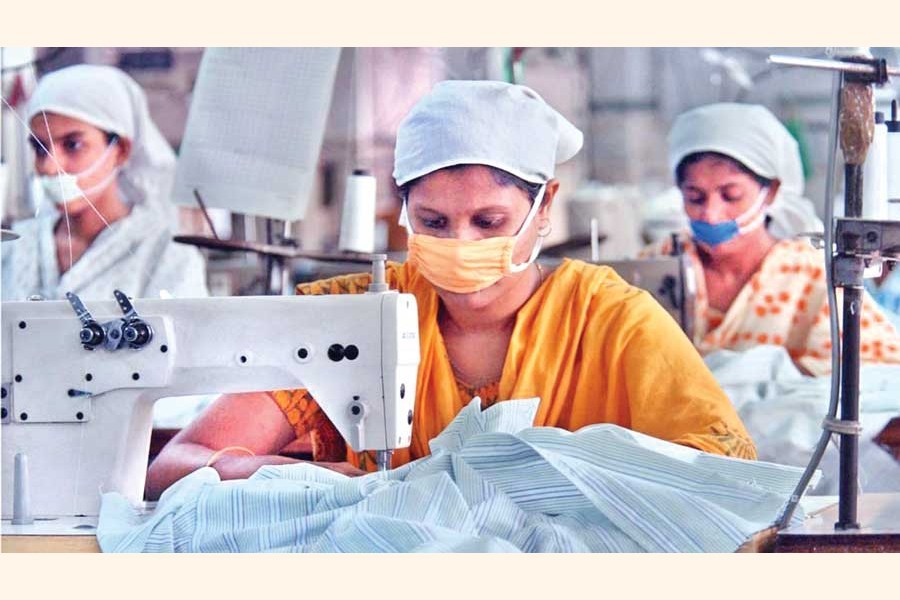Women workers are more vulnerable than their male counterparts to losing their jobs due to automation in five key sectors in Bangladesh, according to a study.
It said women in low-wage occupations with less education are likely to be impacted more due to high risk of automation in readymade garment and textile, furniture, agro-processing, leather and footwear and tourism and hospitality sectors at the beginning of Fourth Industrial Revolution (4IR).
"In the five key sectors, two in five jobs are at risk," said the study titled "Future Skills: Finding Emerging Skills to Tackle the Challenges of Automation in Bangladesh" conducted recently by Access to Information (a2i) programme under ICT Division.
The aim of the research was to assess the present situation on occupational role and skills in the key sectors at the advent of 4IR.
To extend insights beyond main occupations and sectors at risk of automation, several socio-demographic indicators have been analysed to further understand how workplace automation affects different segments of the workforce.
Also in these sectors, young workers aged between 18 and 24 are more susceptible to having an occupation in relation to adult workers, although age-based disparity is considerably lower than the gaps by sex, the study has revealed.
Education levels produce different odds of occupying a high-risk job. Workers with primary education are more at risk of losing jobs than those having secondary school education, the study said.
"Higher education and training helps develop competency needed for complicated tasks requiring advanced level of perception and manipulation as well as creative and social intelligence," it added.
Low level and low quality postsecondary and tertiary education and training as well as low educational attainment level among the workforce are matters of concern.
However, a recent study released by US-based research firm McKinsey in October 2018 forecast that many garment manufacturing countries might incur a substantial loss of business and employment reduction due to automation.
Over 50 per cent of imported readymade garments would be manufactured by 2025 near Europe and the USA, away from Asia, according to about 25 per cent of global sourcing executives who were surveyed.
Asad-Uz-Zaman, policy specialist at a2i, told the FE that the RMG sector along with some other sectors is facing the risk of automation as employers are cutting jobs on a small scale.
He also underscored the need for market-driven skills and proper training for women workers.
Dhaka Chamber of Commerce and Industry (DCCI) president Osama Taseer in a statement said advanced economics are seriously concerned that automation and robots powered by artificial intelligence will axe many occupations and wipe out skills from the workplace.
The RMG industry which accounts for 84 per cent of export earnings and employs directly 32.52 per cent of total employed population in the industrial sector and 6.58 per cent of total employed population in Bangladesh is undergoing structural changes encompassing automation and higher productivity, he added.
Due to this automation process, the DCCI chief said, many skills will become obsolete and many jobs will disappear within a short time.
He also put emphasis on re-skills and up-skills to prepare the workforce for future jobs, focusing on big data analytics, drone and robot operators, large sorting and planting machine operators, mechanical engineering, artificial intelligence network experts, technology-driven services, computer-aided process and enterprise resources planning experts.


